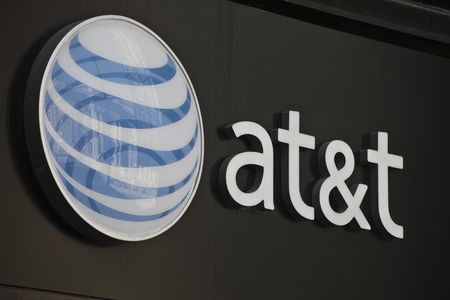 Earlier today the United States Court of Appeals for the Ninth Circuit issued an en banc ruling in Federal Trade Commission v. AT&T Mobility LLC. The decision affirms the denial of AT&T’s motion to dismiss by the Federal District Court for the Northern District of California. The Federal Trade Commission (FTC) may now proceed to challenge AT&T’s practice of severely throttling data speeds of unlimited data plan users.
Earlier today the United States Court of Appeals for the Ninth Circuit issued an en banc ruling in Federal Trade Commission v. AT&T Mobility LLC. The decision affirms the denial of AT&T’s motion to dismiss by the Federal District Court for the Northern District of California. The Federal Trade Commission (FTC) may now proceed to challenge AT&T’s practice of severely throttling data speeds of unlimited data plan users.
The case originated in October 2014, when the Federal Trade Commission filed a federal court complaint against AT&T Mobility charging the company with misleading millions of its smartphone customers. AT&T Mobility advertised “unlimited” data plans, but after a customer went over a certain usage milestone, sometimes as low as 2 GB of data, the company began reducing their data speeds. In some cases data speeds were reduced by almost 90 percent. Furthermore, according to the FTC, AT&T Mobility throttled at least 3.5 million unique customers a total of more than 25 million times.
The FTC charged that AT&T Mobility failed to adequately disclose to its customers on unlimited data plans that if they reach a certain usage milestones within a particular billing cycle, the company would reduce – or “throttle” – their data speeds to the point that many common mobile phone applications – like web browsing, GPS navigation and watching streaming video – become extremely difficult (or nearly impossible) to use.
“AT&T promised its customers ‘unlimited’ data, and in many instances, it has failed to deliver on that promise,” said then FTC Chairwoman Edith Ramirez said upon the filing of the federal complaint. “The issue here is simple: ‘unlimited’ means unlimited.”
AT&T Mobility argued in a motion to dismiss that they were exempt from the jurisdiction of the Federal Trade Commission (FTC) because they qualify as a “common carrier.” Specifically, Section 5 of the FTC Act gives the agency enforcement authority over “unfair or deceptive acts or practices,” but exempts “common carriers subject to the Acts to regulate commerce.” 15 U.S.C § 45(a)(1), (2). AT&T Mobility’s motion to dismiss the action was denied.
The Ninth Circuit granted AT&T’s unopposed petition for interlocutory review, and a three judge panel of the Ninth Circuit reversed. FTC v. AT&T Mobility LLC, 835 F.3d 993 (9th Cir. 2016). That panel “conclude[d], based on the language and structure of the FTC Act, that the common carrier exception is a status-based exemption and that AT&T, as a common carrier, is not covered by section 5” of the Act. Id. at 998.
Subsequently, the Ninth Circuit granted en banc rehearing. This time the en banc Ninth Circuit agreed with the district court and overruled the previous three judge panel. The en banc Ninth Circuit ruled earlier today that “common carrier” immunity only attaches when a company is engaging in common-carrier services. The Ninth Circuit’s decision, authored by Judge McKeown, explained:
We conclude that the exemption in Section 5 of the FTC Act—“except . . . common carriers subject to the Acts to regulate commerce”—bars the FTC from regulating “common carriers” only to the extent that they engage in common- carriage activity. By extension, this interpretation means that the FTC may regulate common carriers’ non-common- carriage activities.
Thus, the en banc Ninth Circuit held that the FTC Act’s common-carrier exemption was activity-based, and not status-based as the previous three judge panel had ruled.
“I welcome the Ninth Circuit’s ruling as good news for consumers,” said Acting Federal Trade Commission Chairman Maureen K. Ohlhausen after the Ninth Circuit decision was announced. “It ensures that the FTC can and will continue to play its vital role in safeguarding consumer interests including privacy protection, as well as stopping anticompetitive market behavior.”
The case will now proceed in the Northern District of California. See Federal Trade Commission v. AT&T Mobility LLC, (No. 3:14-cv-04785-EMC).

![[IPWatchdog Logo]](https://ipwatchdog.com/wp-content/themes/IPWatchdog%20-%202023/assets/images/temp/logo-small@2x.png)

![[Advertisement]](https://ipwatchdog.com/wp-content/uploads/2024/04/Patent-Litigation-Masters-2024-sidebar-early-bird-ends-Apr-21-last-chance-700x500-1.jpg)

![[Advertisement]](https://ipwatchdog.com/wp-content/uploads/2021/12/WEBINAR-336-x-280-px.png)
![[Advertisement]](https://ipwatchdog.com/wp-content/uploads/2021/12/2021-Patent-Practice-on-Demand-recorded-Feb-2021-336-x-280.jpg)
![[Advertisement]](https://ipwatchdog.com/wp-content/uploads/2021/12/Ad-4-The-Invent-Patent-System™.png)







Join the Discussion
3 comments so far.
Gene Quinn
February 27, 2018 01:43 pmrando-
Yes. May NOW proceed. What a terrible typo. My apologies.
rando
February 27, 2018 11:34 amLast sentence, first paragraph, should “may NOT proceed” be “may NOW proceed”?
Valuationguy
February 27, 2018 08:57 amMy overall guess is that this en banc is going to open a large can of worms for regulators…..as the court is now saying that common carrier regulations can only apply to the activities…rather than the carrier itself.
(I think the Ninth Circuit is correct…but wonder how far reaching this decision will become on telecom regulation and policy…)